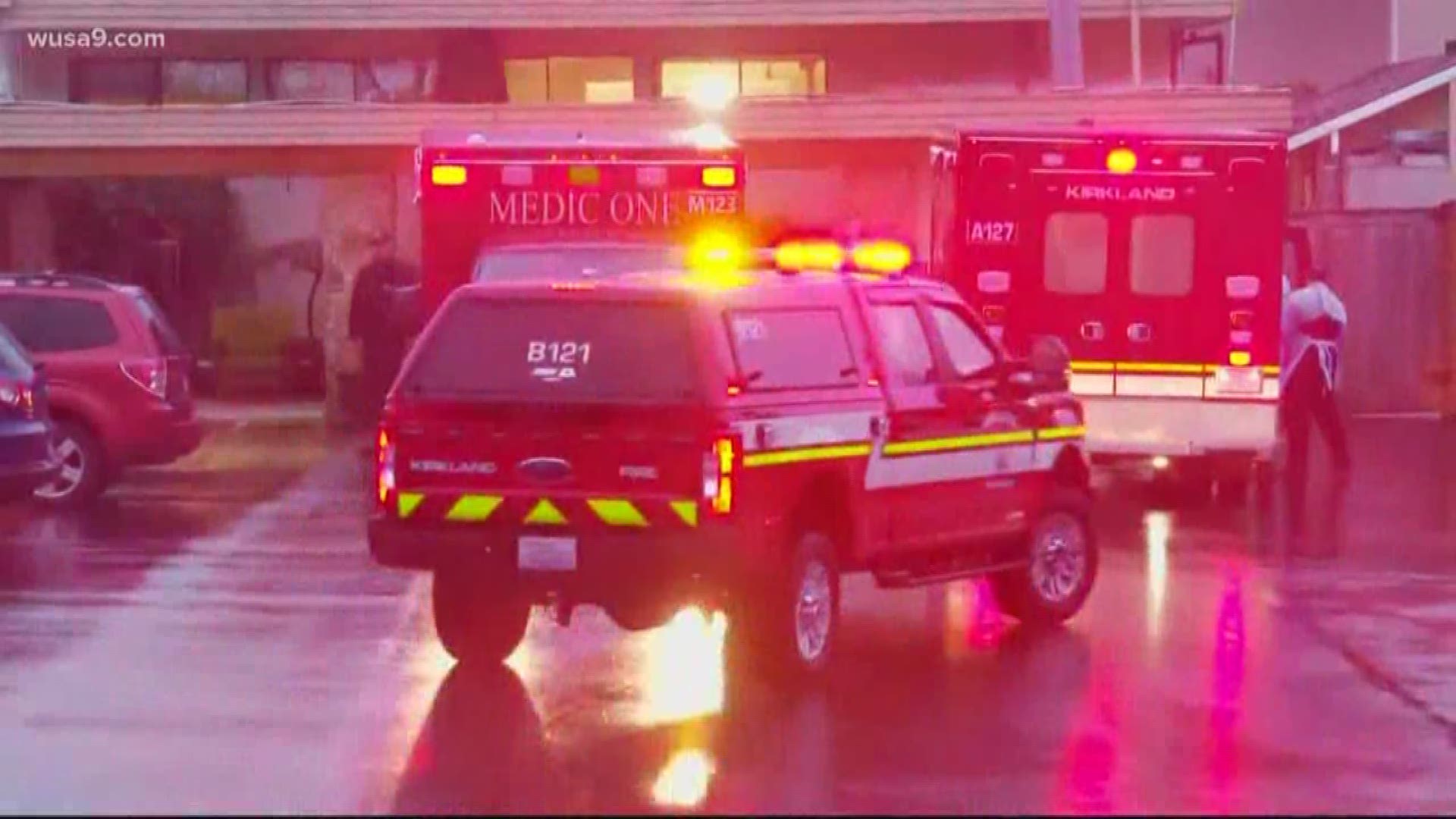WASHINGTON — For the latest real-time updates on coronavirus cases in the DMV, please click here.
To check the status of the virus in your state, please see your state health department's websites:
Check out the latest numbers in the U.S. and around the world:
About Coronavirus
In December 2019, Chinese health officials announced they were investigating a pneumonia outbreak of unknown etiology (cause) in the city of Wuhan, China. At that time, it was reported that many of the cases were linked to a seafood and animal market in Wuhan. Since then, health officials have reported that the outbreak was caused by a novel coronavirus, and the illness has been named "coronavirus disease 2019" (abbreviated "COVID-19").
There are many viruses in the coronavirus family that can cause illness in both humans and animals. Several coronaviruses commonly circulate among people all of the time and cause mild to moderate illnesses, such as the common cold. Other coronaviruses commonly circulate only in animals. Rarely, animal coronaviruses can evolve and infect people and then spread between people as has been seen with MERS and SARS.
This is a new virus that hasn’t caused illness in humans before. Here are some COVID-19 frequently asked questions.
Worldwide, COVID-19 has resulted in thousands of human infections, causing illness and in some cases death. Currently, most of these infections are in China and South Korea, with increasing numbers of cases now being reported in Japan, Italy and Iran.
This situation will change as this virus continues to spread. As of this week, cases have now been reported in at least 37 countries. Experts have expressed concern that COVID-19 will spread worldwide.
Symptoms of COVID-19
Commonly reported symptoms of COVID-19 infection include:
- Fever
- Cough
- Shortness of breath
- Pneumonia
RELATED: What are coronavirus symptoms?
While the exact incubation period for this coronavirus has not yet been determined, it is believed that most infected people will develop symptoms 2-14 days after they were exposed.
D.C. Health officials say that if you feel that you may have coronavirus and need to go to a health care provider, that you should contact the health care provider beforehand so they can be prepared to handle your arrival safely.
Transmission
Many of the patients in the pneumonia outbreak caused by COVID-19 in Wuhan, China had some link to large seafood and live animal market, suggesting animal-to-person spread. However, person-to-person spread is now widely occurring.
Prevention
There is no vaccine available for COVID-19. In general, people can protect themselves and others against respiratory viruses by taking the following precautions:
- Wash your hands frequently with an alcohol-based hand sanitizer or soap & water.
- Cover your mouth and nose while coughing or sneezing.
- Avoid close contact with people who are sick.
- If you are sick, stay home from work or school.
- Avoid touching your eyes, nose, or mouth with unwashed hands.
- Practice good health habits.
It's not too late to get your flu shot! While the influenza vaccine does not protect against coronavirus infection, it can help keep you healthy during the flu season.
Diagnosis
Currently, testing for COVID-19 can only be done at certain public health laboratories. Clinical laboratories do not have the ability to test for this particular virus, though they do have the ability to test for the other, more common coronaviruses that circulate in people all the time.
Treatment
People with COVID-19 should receive supportive care. There is no specific antiviral treatment for this illness.
Guidance for people who recently traveled to China
Public health authorities have implemented travel procedures for travelers from China arriving in the United States.
Guidance for travelers from other parts of China (outside Hubei Province) in the past 14 days includes:
- If you have a fever, cough, or trouble breathing: CDC staff at the airport will evaluate you for illness. You will be taken to a medical facility for further evaluation and care. You may not be able to complete your travel itinerary.
- If you do not have symptoms: You will be allowed to reach your final destination. After arrival at your final destination, you will be asked to monitor your health for a period of 14 days from the time you left China. You will receive a health information card that tells you what symptoms to look for and what to do if you develop symptoms. During that time, you should stay home and limit interactions with others as much as possible. Your state or local health department will contact you for further follow-up.
Guidance for travelers from the Hubei Province and other resources for returning travelers are available on the CDC Information for Travelers website.
Guidance for people who recently traveled to other countries with community spread of COVID-19
Monitor the CDC Travel Health Notices webpage for important travel notifications.
Travelers returning from countries outside of China with community spread of COVID-19 are encouraged to monitor for symptoms and call their healthcare provider if symptoms develop.
CDC Resources:
Other Resources:

